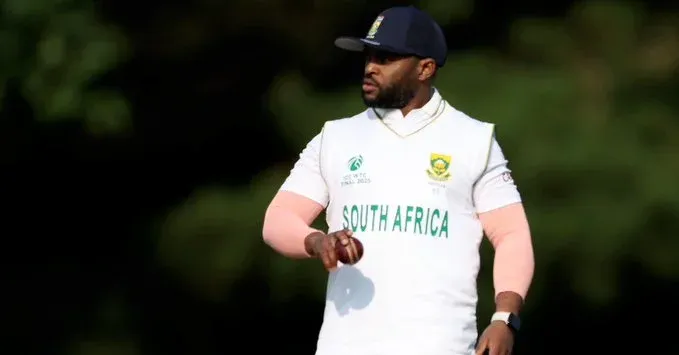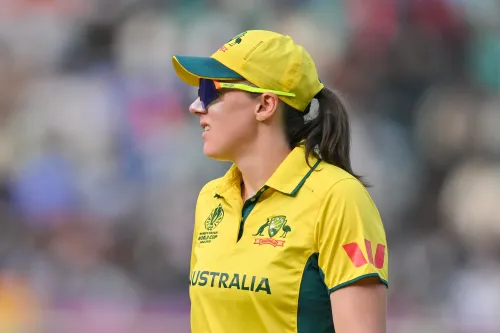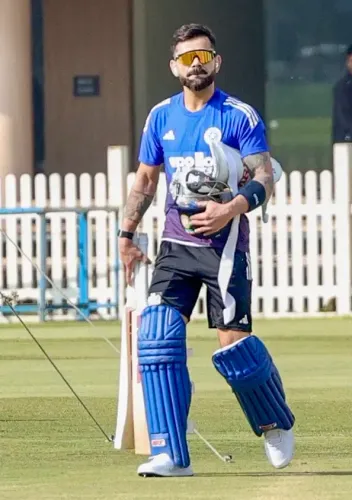Did Temba Bavuma Always Dream of Lord’s Growing Up in Langa?

Synopsis
Key Takeaways
- Temba Bavuma's journey embodies resilience and hope.
- His childhood dreams were shaped by the iconic Lord’s.
- Bavuma faced significant challenges in integrating into elite cricket.
- He made history as the first Black South African to score a Test century.
- South Africa's path to the final involved overcoming numerous obstacles.
New Delhi, June 7 (NationPress) South Africa's Test captain Temba Bavuma shared an emotional insight into his cricket journey as he gears up to lead his squad in the ICC World Test Championship final against Australia at Lord’s — a venue he envisioned while growing up on the dusty streets of Langa.
In their last encounter, South Africa faced Australia in a Test series during 2022-23, where the hosts emerged victorious with a 2-0 scoreline.
“Growing up in Langa, there was always a connection to Lord’s,” Bavuma stated in an interview with The Guardian. “On one side of the street, the tar was poorly done, which we dubbed Karachi. The other side resembled the MCG. But my favorite part was well-kept, resembling Lord’s, as it appeared more appealing. At just 10 years old, I dreamt of playing at Lord’s.”
Now at 35, Bavuma stands as the first Black cricketer to captain South Africa in Test matches, bearing not only the expectations of his teammates but also the significant weight of his inspiring personal story — marked by struggles with inequality, access, and endurance.
His early cricket experiences involved competing with older boys in street games and later navigating elite predominantly white institutions after receiving a scholarship. Bavuma recalls the hurdles he faced.
“Integrating into the system was challenging, especially in terms of understanding the (white) culture,” he remarked about his time at SACS.
“I had to adapt to discipline and etiquette. Learning to be confident was vital. Imagine a child from the township entering a system where everything is provided? Doubts always loomed. Am I truly worthy of being here?”
He vividly remembers the stark differences, especially when SACS faced Langa. “My friends from Langa had large plates at lunch. We joked about it, but the boy from Langa wondered when he'd get another chance to enjoy a meal like that?”
After relocating to Johannesburg and joining St David’s — which recently honored him by naming its cricket ground after him — Bavuma eventually became “one of the boys,” confident in his surroundings. However, the ascent to cricket’s pinnacle was a long and arduous journey.
He made history as the first Black South African to score a Test century in 2016; however, his second century came only in 2023 after assuming the captaincy. “The weight of responsibility and being promoted in the batting order is something I thrived upon,” Bavuma expressed. “Most importantly, I focus on my game without emulating others.”
Under his leadership, South Africa had to secure seven consecutive Test victories to reach the final against Australia, commencing on June 11, overcoming challenges related to scheduling disparities, player availability, and funding limitations.










